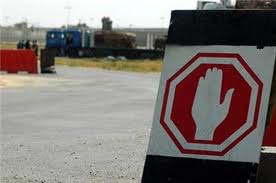
During January, the Israeli authorities continued its illegal and inhuman 14-year closure on the Gaza Strip. The consequences of the closure are most evident in the Gaza Strip’s weathered humanitarian conditions, exhausted health system and fragile economic situation, which hampered the ability of the authorities in the Gaza Strip to combat the spread of Covid-19. Furthermore, the Israeli closure impacted the provision of basic services to at least 2 million Palestinians, who live in dire conditions in the most overpopulated area in the whole world.
During the reporting period, the Israeli authorities banned the entry of Covid-19 vaccines to the Gaza Strip, which threatens local efforts to control the spread of the virus. The capacities of healthcare facilities in the Gaza Strip have diminished greatly under the Israeli closure, which rendered them fragile and in chronic shortage of basic medicines, medical devices and specialized medical personnel, making the healthcare system unable to meet the Gaza Strip’s basic health needs in regular times, let alone in the midst of a pandemic. Gaza’s medical facilities struggled to operate after the outbreak of Covid-19 in the Gaza Strip, as they had shortage in coronavirus testing kits, intensive care units (ICU), respirators, and coronavirus diagnostic equipment, medicines, medical consumables and protective gear necessary to combat the coronavirus. The Palestinian Centre for Human Rights (PCHR) and dozens of human rights organizations confirmed that the primary responsibility for providing medical supplies to the Gaza Strip population, including Covid-19 vaccine, lies with Israel in accordance with Articles 55 and 56 of the Fourth Geneva Convention of 1949.
